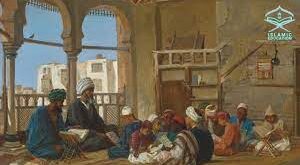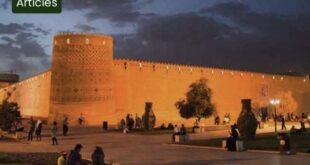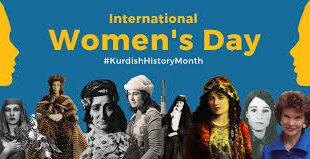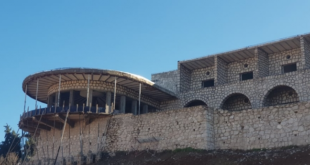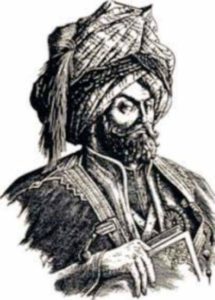
By Dr Kamal Mirawdeli
Sharafkhan Bidlisi (Kurdish: Mír Sheref el Dín Bitlísí) was born to a ruling family from the tribe of Rozaki (Rozakí) in North Kurdistan in 1543. This background provided him with both opportunity to get excellent education in the sciences of his time, and also to become a political actor at a very early age and then become fully immersed in Kurdish dynastic politics in the context of wider imperialist rivalry and conflict between the Sunni Ottoman and Shiite Safavid empires. Eight years before his birth, the Ottomans had disposed his father from his dynastic rule.
In retaliation, Sharafkhan sided with their enemies the Safavids. Therefore he spent most of his early youth with the Iranian nobility. His father sent him to the capital when he was eight years old. There he studied with the sons of Shah Tuhmasib and his noble relatives. Sharafkhan was engaged in statesmanship when he was only twelve years old. At this age, in 1554, he was made the prince of Salyan and Mohammadabad in the district of Sheerwan north of Azerbaijan. In 1556 he was given the title of Prince of Rozaki tribe and stayed in the King’s castle in Qazwin for two years. In 1568 Shrafkhan became the commander of the army which quelled the rebellion of Ahmad Khan in Lahjan of the Geylan district. When Shah Ismael became King in 1576, Sharafkhan was made the Prince of the Princes of Kurdish tribes in ëran. All major responsibilities of Kurdistan and Luristan were given to him.
When the Qizilbashis accused Shah Ismael of being pro-Sunna, the Shah changed his mind and expelled Sharafkhan to Nekhchewan. This made Sharafkhan very resentful, as he wanted to remain in Kurdistan. The Ottomans were able to establish contacts with Sharafkhan through another Kurdish leader Khasrawkhan, the prince of Wan, and gain his sympathy towards the Ottomans. Thus at the beginning of December 1578, Sharafkhan with a 400 strong force joined the Ottomans and left Nakhchavan to return to Kurdistan.
From then, Sharafkhan participated in the wars which Sultan Murad the Third launched for ten years against the Iranians for the occupation of the districts of Caucuses. In return, Sultan Murad gave him the title Khan and gave the rulership of Bidlis to him and his descendants. Sharafkhan governed Bidlis for a short period and when he was 53 years old he devoted himself to the writing of the history of the Kurds and left the principality to his son Abulmalik Shamsuddin. Thus Sharafkhan lived for 32 years amidst the greatest events of Iran, Turkey and Kurdistan, and devoted the last eleven years of his life to the writing of Kurdish history.
That Sharafkhan did not follow the example of other Kurdish leaders and princes to cling to power until he was dead, killed or disposed, and instead chose to dedicate himself to the writing of the history of his people, tells a lot about Sharafkhan and the nature of his enterprise. This does not only show that Sharafkhan was a great intellectual who greatly valued the art of history, but also shows that during his statesmanship and the turbulent events he experienced, he was a Kurdish statesman and fighter and was always conscious and proud of his Kurdishness and also of the Kurdishness of great many other statesmen, scholars and soldiers who had played or were playing critical roles in the history of the Middle East. Like Ahmadi Khani after him, Sharafkhan was keen to define himself and assert his identity as a Kurd in relation to the other, the Persian and the Turk. He was keen to reclaim a remarkable space of the history of the Middle East which was his nation’s and of the geography of the Middle East which was his people’s homeland. Thus, as I said earlier, Sharafkhan’s was a national project. But how does he define this national project? How does he interpret his nation’s history? Before trying to reply to this, I go back to Sharafnama’s prologue to read what Sharafkhan himself says about the background of his intellectual enterprise.
 History of Kurdistan
History of Kurdistan
